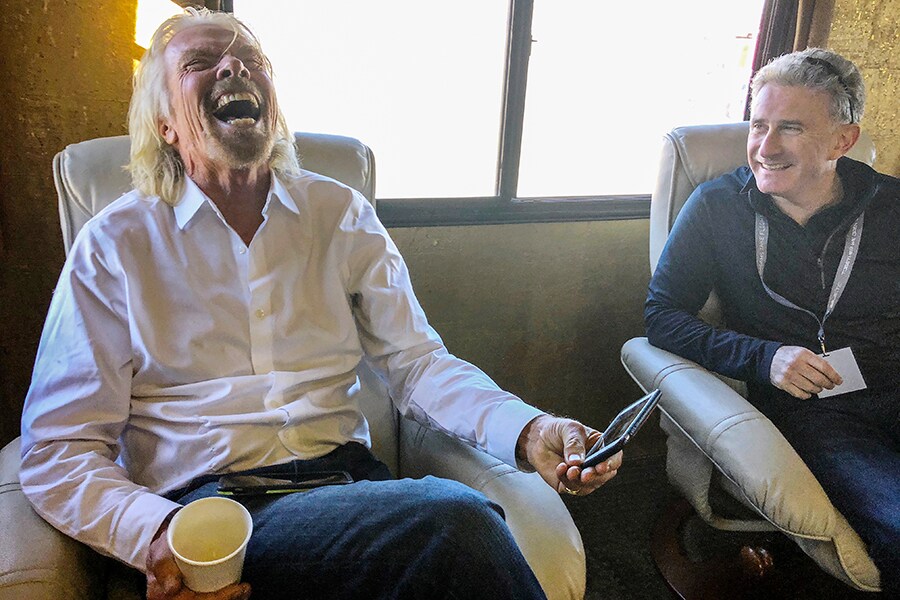
Richard Branson will try to beat Jeff Bezos to space with July 11 flight
If all goes as planned, Branson will make his flight nine days before Bezos, the founder of Amazon, straps into the New Shepard capsule built by his rocket company, Blue Origin
 Richard Branson looks at photos from the pilots’ perspective following the launch of the test flight of Virgin Galactic’s manned space tourism rocket plane SpaceShipTwo during its space test flight in Mojave, California, U.S. December 13, 2018.
Richard Branson looks at photos from the pilots’ perspective following the launch of the test flight of Virgin Galactic’s manned space tourism rocket plane SpaceShipTwo during its space test flight in Mojave, California, U.S. December 13, 2018.
Image: Reuters/Eric Johnson
Seeking to upstage Jeff Bezos as the first rocket company owner to go to space, Richard Branson, the British billionaire who founded a galaxy of Virgin companies, announced Thursday night that he would be a member of the crew on the next test flight of the Virgin Galactic space plane.
That flight is scheduled to take off July 11 from Spaceport America in New Mexico.
“The team was ready, so they asked Richard if he was ready to go,” said Aleanna Crane, vice president of communications for Virgin Galactic. “It’s a big day. It’s a very exciting day.”
Branson will be in a position to claim bragging rights in a growing business of spaceflight for private citizens. Companies including Virgin Galactic and Bezos’ Blue Origin are competing to launch paying passengers on suborbital and orbital trips in the coming years. Although the first trips will be expensive, the expectation is that ticket prices will come down over time as the market grows.
©2019 New York Times News Service




